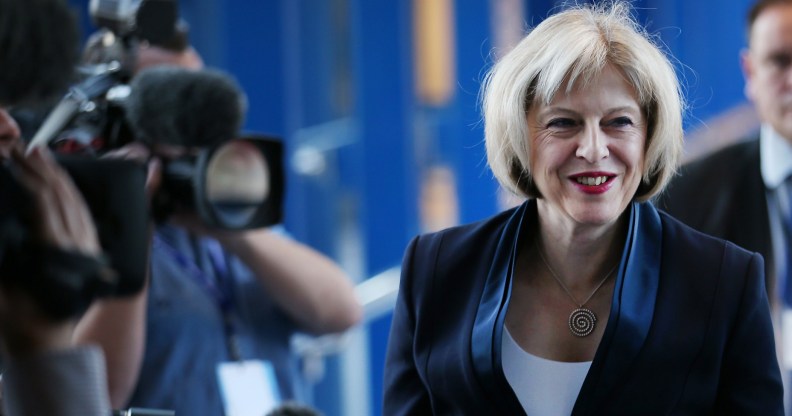Theresa May revives plan to withdraw from human rights court

Home Secretary Theresa May (Getty)
Prime Minister Theresa May has revived her controversial plans to pull the UK out of the European Convention on Human Rights, according to reports.
While serving as Home Secretary earlier this year, Mrs May set out the case for the UK leaving the European Court of Human Rights, claiming it had done “nothing” for Brits – despite the court helping to secure many early LGBT rights victories.
The ECHR is not a European Union institution, and so the Brexit process will not lead to withdrawal.
May’s proposal had drawn fire from other leading Conservatives, with Scottish Tory leader Ruth Davidson warning in a PinkNews interview that leaders in Scotland would fight any changes.
During her Conservative leadership campaign, Mrs May appeared to shelve her proposals, admitting: “I recognise that this is an issue that divides people, and the reality is there will be no Parliamentary majority for pulling out of the ECHR, so that is something I’m not going to pursue.”
But according to reports this week, however, the new PM is planning to seek a mandate to withdraw from the ECHR by including proposals in the 2020 Conservative manifesto.
The change would see Britain withdraw from the ECHR alongside the repeal the 1998 Human Rights Act, in favour of a long-touted ‘British Bill of Rights’.
The British Bill of Right is intended to provide narrower protections than the Human Rights Act, with previous Tory documents suggesting it would not apply to “trivial” issues.
A source told the Telegraph: “A clean break is by far the best option and, if we put it in the manifesto, even those Tory MPs who are squeamish about the idea will have to get behind it. A manifesto pledge also means the Lords will have to let it through eventually.”
Article 14 of the ECHR, which affords protection from discrimination, has been used in many legal cases to argue for protection for LGBT people, most notably securing an equal age of consent in the UK.
The ECHR was also vital in securing a settlement in the Republic of Ireland in 2014 on gender recognition. It remains influential across Europe on LGBT rights, with Italy also securing civil unions due to an ECHR ruling.
Experts fear that a British withdrawal from the court may put its sway across Europe in jeopardy.

